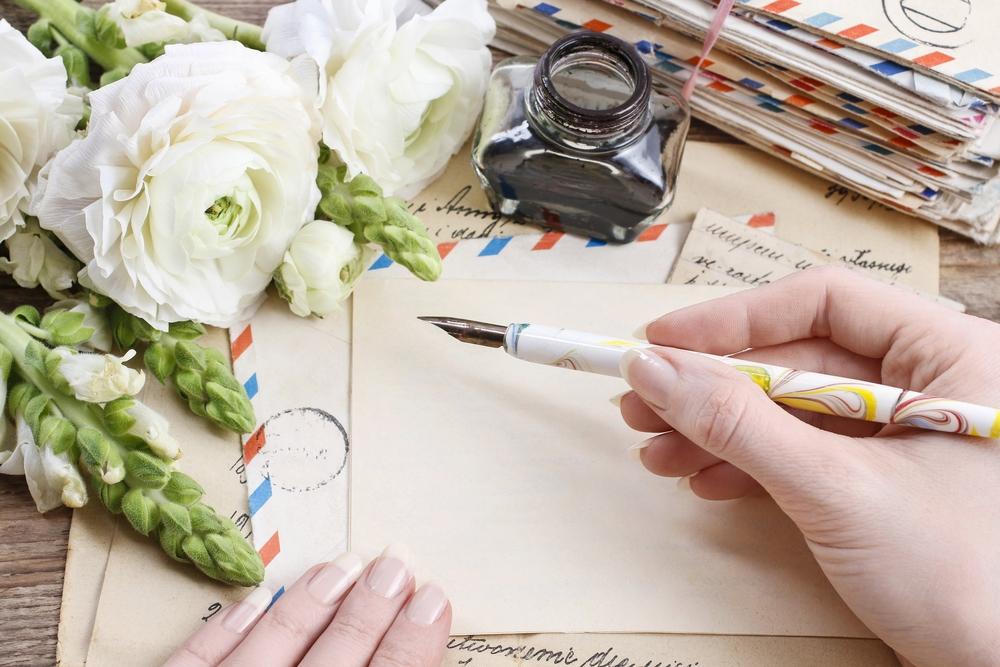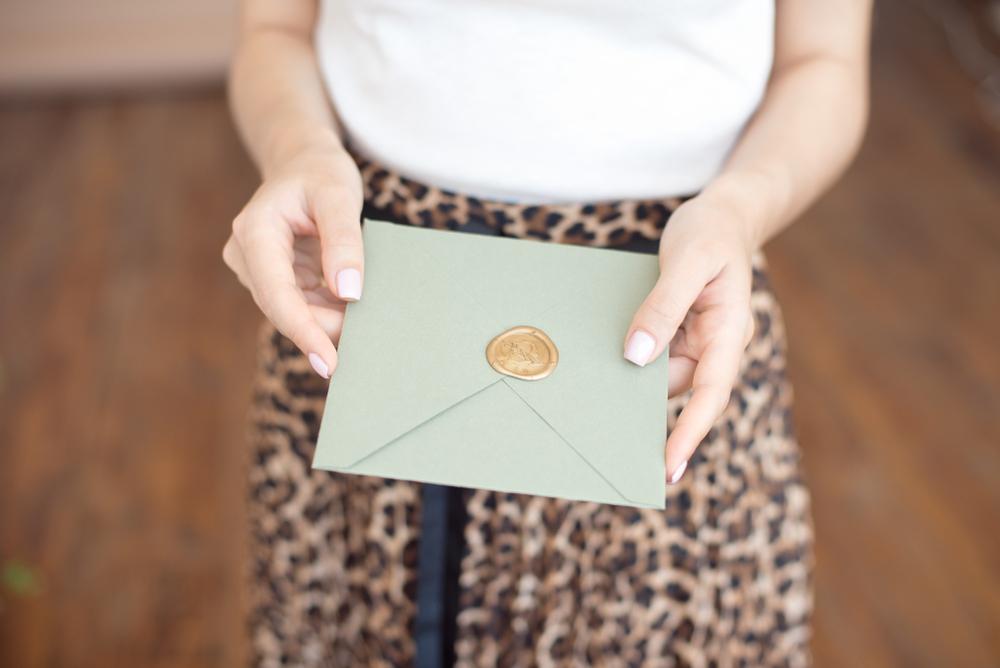One of the primary purposes of having a wedding is for people to witness your promise to each other. Naturally, therefore, the guests need to make it there.
Most importantly, your nearest and dearest family and friends must be there. You need to do everything you can to compromise with them and work out a date and time that is convenient for everyone. Therefore, your invitations need to be sent in good time.
Inviting guests to your wedding may seem straightforward, but it can be time-consuming, expensive, stressful, and complicated.
You must decide who to invite, send save-the-dates and formal invitations, and ensure that everyone RSVPs. But one thing that makes the process a lot easier is having enough time to handle all that comes with it.
But how do we know when the best time is to start sending out invitations and save the dates? Let’s explore this question further.
What Are Save-the-Dates?
When To Send Save-the-Dates
When To Send Wedding Invites
When to Send Other Wedding Related Invites
How Early is Too Early for Wedding Invitations?
When Not to Send Save-the-Dates
Frequently Asked Questions
What Are Save-the-Dates?
Everyone is familiar with the basic wedding invitation, but not everyone knows what a save-the-date is.
Many people omit save-the-dates from their wedding plans, so it is understandable that most people only vaguely know anything about them. So, we need to start by adequately defining what they are.

A save-the-date welcomes your guest to mark the date on their calendar. It is a straightforward concept.
While it does provide some information regarding the wedding, the purpose of this card is to allow guests to plan ahead of time and to inform them that you will deliver a formal invitation at a later date.
They are thus a precursor to a formal invitation. They often serve as a placeholder for the invitation, letting guests know to clear their schedules or avoid committing to other events on that day. They are a fantastic way to let people you care about know that they are being invited to your wedding for sure.
But is all this truly necessary?
But, this pre-invitation notification is still necessary. Furthermore, if you’re planning a destination wedding during a busy travel period, such as a holiday weekend, or in a faraway place, such as a distant tropical island, sending a save-the-date is an expected courtesy.
Many of your guests will need to make travel and hotel arrangements, so it’s best to assume your guests will need time to budget and prepare for it. And if we can set all seriousness aside for a minute, save-the-dates are a fun way to drive up excitement for your wedding!
Most guests will be fine with an invitation-only, and others will probably already know about your wedding and any unique plans.
Although it seems straightforward, and generally is, most things to do with weddings have an extra layer of protocols to follow.
Questions such as when they are sent and which circumstances are appropriate for their use quickly confuse people. Let us change that in this guide.
When To Send Save-the-Dates
Save-the-dates are given out before wedding invitations and should be sent between six and 12 months before the wedding. Sending the save-the-date 12 months in advance is customary if your engagement is longer than a year.
Anything beyond this may make your guests forget about the event. Also, consider that you can never be sure what the future holds, and people have finite control over the events in their lives the further away it is. Therefore, the longer there is to wait between a wedding and a save-the-date, the more likely the guests will not be able to tell for sure if they can make it, even if they promise to.
If you are going for 12 months, remember that you can email event reminders to ensure that your guests don’t forget. It’s best to keep your wedding at the forefront of their minds.
Many people postponed their weddings due to the pandemic and are rescheduling as more and more places open up.
If you’re planning a wedding in the aftermath of the pandemic, you might want to send out your save-the-dates a little earlier. Dates are being picked up rapidly with so many couples postponing and rescheduling all at once, and it may be vital to let loved ones know your date sooner so that they may save it and prevent missing your special day.
When To Send Wedding Invites
Finding the best time to send out wedding invites can be a tricky balancing act. But only allow at most three months between them and the save-the-date. After that, you should send invitations eight to 12 weeks before the event (two to three months out).

Set a date on the card for attendees to RSVP by so you can have a headcount, but expect some people to miss that deadline.
If you’re worried about not having enough time, send out your invitations at least 16 weeks (four months) before the wedding.
Always follow up with people who have not replied, just in case someone forgot to RSVP.
When To Send Other Wedding Related Invitations
Weddings are not just about the ceremony and the reception. There are many events leading up to and after the main event. Therefore, it is important to specify who will be invited to which event, let them know in the save-the-date, and then customize an invitation for each special event.

Here are a few common wedding events you should not forget to send invitations for:
Bridal Shower Invitations
Depending on how many out-of-town guests you invite, you should send bridal shower invitations 6–8 weeks in advance.
Give visitors who live far away plenty of time to make travel and lodging arrangements. Doing so can save money, especially if they live relatively far from the event location.

Engagement Party Invitations
Engagement party invitations can be simple—an e-invite is sufficient, especially if you intend to send guests bulky paper invitations for future wedding-related activities.
Your invitations should be sent out as soon as possible after your engagement since you want the happy news to be fresh in their minds and you to hold the party before wedding-planning woes kick in.
Generally, it is a good rule to organize an engagement party within two to three months of getting engaged and send out invitations three to four weeks before the event.
Bachelor(ette) Invitations
Most bachelor or bachelorette parties require guests to travel. As a result, you should send your invites six to eight weeks in advance, so your out-of-town guests have enough time to book their vacation accommodations without incurring lake-booking fees or surging airfare.
Day-After Events
We recommend including a separate card with your wedding invites for day-after activities, such as brunch or send-off parties. Out-of-town visitors can then use that information when booking their journey home.
If you cannot include this information with your initial invitations due to a last-minute decision, an e-invite sent six to eight weeks in advance would suffice. Remember your traveling guests.

Rehearsal Dinner Invitations
If your rehearsal dinner guest list includes a lot of traveling guests, you should send out formal invitations six to eight weeks in advance. If, on the other hand, it’s a modest and relaxed celebration with only local attendees, you can send e-invites four weeks in advance.
Remember you should always send those rehearsal dinner invitations after the wedding invitation.
How Early is Too Early for Wedding Invitations?
As mentioned above, you can send invitations anywhere between eight and 16 weeks before the wedding. Sending out invitations earlier might seem like a bright idea to finish preparing sooner, but in the end, it might make it harder to decide how many guests to invite and finalize booking with vendors.
Sending wedding invitations too early can be a problem. Many brides want to send out invitations early to check their numbers with vendors and reduce stress. But often, even the vendors are unwilling to commit.
What usually happens is that guests forget to reply and leave their invitations in a stack of mail. Or, as we have mentioned, they cannot commit to a date so far out. Other times, someone might say “yes” to the RSVP but subsequently forget about it because too much time passes between the RSVP and the event.
Also, it may be too soon for wedding vendors to find reservations. So most of your effort will be in vain because only very few people will be capable of bookings.
When Not to Send Save-the-Dates
You do not need to send save-the-dates if:
- Your wedding will be happening soon after the engagement
- Your wedding will be happening locally, and only people nearby will be invited
- No significant planning from the guests will be required
Remember, you may still want to send save-the-dates, and nothing is wrong with that! But you should remember that they can be a lot of work to manage.
If you ultimately choose to leave them out, send out your wedding invites a little earlier than you would have if you had sent out save-the-dates. Do this advance distribution regardless of whether there are special plans and a destination wedding or not.
You might want to lean toward 16 weeks before the wedding when sending out invitations. This way, visitors are given a little more notice and time to prepare.
Frequently Asked Questions
Here are the most frequent questions we get about save-the-dates and wedding invitations:
How Long Should I Give Guests to RSVP to My Wedding?
Assuming you’ve sent out your invites in plenty of time, at least six to eight weeks before your wedding, give your guests four or five weeks to respond. This gives folks plenty of time to decide whether or not they want to attend your wedding and make the required travel arrangements.
What Should I Do If I Forget to Send Out a Wedding Invitation?
Although it may seem like a big blunder, it is pretty easy to fix! Simply give your loved one a call and explain what happened right before you offer to send them an invite.
When Should I Add a +1 on a Save-The-Date?
Guests who are married, engaged, or cohabiting should receive a plus-one. Give each member of your wedding party a plus-one. Consider inviting people who have been with their partner for so long that it would be odd not to, even if you are unfamiliar with their spouse.
You could also do this for single parents, especially those who are always with their children or whose children are minors.

